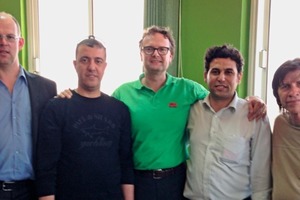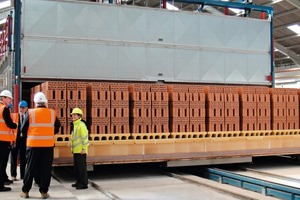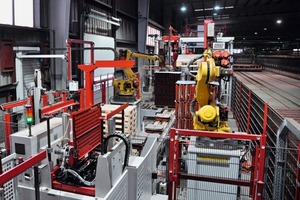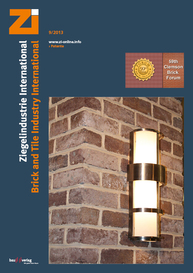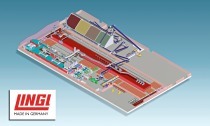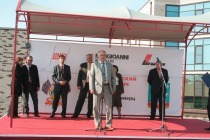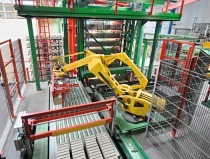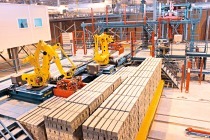News from Lingl
SARL BCB concludes a contract with Lingl
The Algerian brick manufacturer SARL BCB, based in Tidjelabine, Wilaya de Boumerdes, signed a contract with Lingl on 13 May, shortly after the successful conclusion of the Batimatec trade fair in Algiers (»1). Subject of the contract is the delivery of a complete plant for the production of wall bricks. Detailed studies preceded this order. In its function as general contractor, Lingl will supply a complete plant consisting of preparation and shaping installation, all the machines as well as dryer and tunnel kiln. The planned nominal capacity of the plant is 280 000 t finished products per year. Industrial robots will be used for product handling and the products will be dried in a Lingl rapid dryer, type Opti-Flow. With this brick production facility “made in Germany” equipped with all special features ready for the future Lingl will set a further milestone in Algeria.
First tunnel kiln car out
of Chesterton
On 26 June, five days earlier than scheduled, the first kiln car with fired ware exited the tunnel kiln in the newly built Chesterton factory near Newcastle-under-Lyme in the county of Staffordshire (»2). The factory, ordered in November 2011, will provide the whole Midlands region in England with around 80 mill. extruded facing bricks annually. The new brickworks complex was built upon the area of the original plant from the 1970s and is equipped with the latest energy-efficient drying and firing technology.
Röben Poland: Successful acceptance test of roofing tile accessories line in plant 3
Lingl has received the final acceptance for the newly installed accessory unloading and packaging line of plant 3 based in S´roda S´l˛aska, west of Wroclaw. Project Manager Helmut Simon points out: “This project can justly be described as the most demanding one for accessories that Lingl has ever realized. The special feature is that thanks to the use of state-of-the-art visualization technology, two different product types can be identified and handled at the same time. In addition to this, the also installed automatic fault detection eliminates complex, manual sorting work. The compact and yet streamlined system combines highest productivity with a labour-saving operating concept.” (»3).

